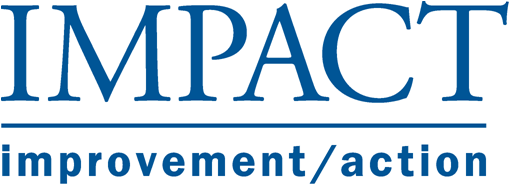Welcome and Introductions
Donald M. Berwick, MD, MPP, FRCP, KBE
President and CEO, Institute for Healthcare Improvement
Dr. Berwick welcomes the early morning crowd to the meeting in downtown Detroit and explains that although IHI is headquartered in Cambridge, MA it has deep roots in Detroit and has received endless support from the Henry Ford Health System.
The IMPACT network is central to the strategy and concept of IHI and is a vehicle to drive change. As a “spread device”, IMPACT is about coming together and sharing knowledge locally, nationally and internationally.
Four strategic pillars (and examples):
• Motivation (optimism; creating the will to change from the status quo)
• Innovation (numerous projects)
• Spread (large scale change)
• Support (IHI Open School)
• (And finally, Longevity! We must work to develop a system that will be stable and enduring.)
What’s going on in the QI realm? There is a movement to “rationalize” acute care and adopting an approach that uses “process thinking” instead of the “measures thinking” that hospitals currently follow. On average, a hospital measures over 1,000 variables, which certainly seems inefficient!
The IHI Open School is a growing network of technologically savvy health professions’ students in over 140 chapters throughout the world who are working to create their own communities for healthcare change. At the least, the use of networking to communicate (such as blogging) is a “carbon free” method that has previously lacked a business model. The surgical safety checklist sprints that were recently conducted fall into this realm. Dr. Berwick predicts that many of these new ways of relating to geopolitical entities will be critical to achieving population-based change.
The policy environment in Massachusetts is a great example of a locale where the topic of the individual insurance mandate has taken center stage; it is becoming all too clear that economic recovery will not be feasible without healthcare reform, yet conversations in Washington cannot be limited to expanding healthcare coverage.
Can we shift finances and payers in the direction of creating “accountable” healthcare organizations, Berwick asks us? Self-regulation of healthcare organizations may be key to future progress but the dilemma seems to exist within establishing an enforcement mechanism of otherwise voluntary policies. So, what will happen? Berwick outlines what he describes as a “pessimistic” short-term scenario that uses Medicaid as one vehicle for partially extending coverage. In terms of quality the obvious challenge will be to find money-saving solutions to problems.
IMPACT can have an impact and the opportunity for leadership is greater than ever!
Tuesday, June 2, 2009
Subscribe to:
Post Comments (Atom)

No comments:
Post a Comment